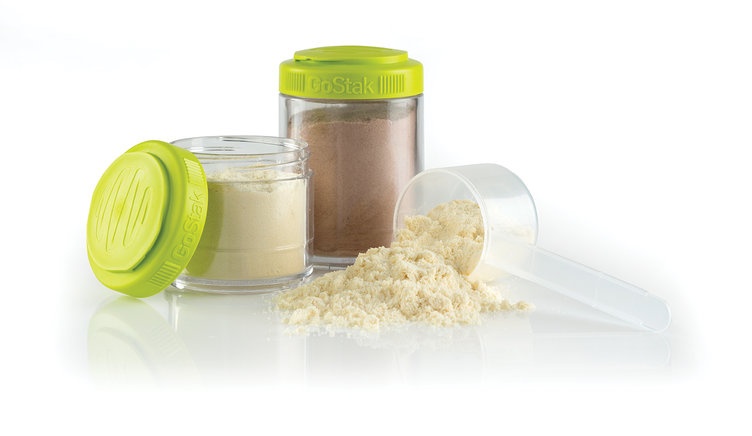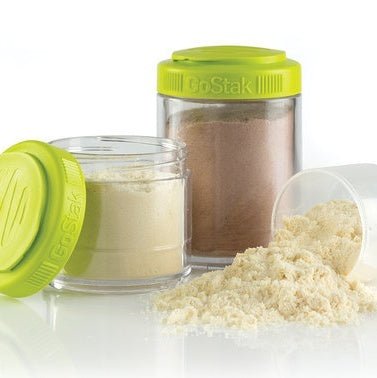
All about soy protein.
Soy protein powder is a widely available protein extracted from the soybean plant. The only plant-based protein considered a complete protein, soy protein contains all nine essential amino acids and is most similar to animal proteins in its makeup. Therefore, soy protein powder is a common choice for anyone seeking a vegan protein powder.
Characteristics and Benefits of Soy Protein
Nothing quite beats the popularity of whey protein, but for anyone following a dairy-free, vegetarian, or vegan diet, soy protein powder can be an excellent alternative. There are numerous benefits to soy protein, including:
- It is the only high-quality complete protein derived from plants; other plant proteins must be consumed in combination in order to provide all the essential amino acids that our bodies need to function, flourish, and grow.
- Soy is rich in nutrients such as B vitamins, vitamin E, zinc, iron, phosphorus, and potassium, which help to strengthen the immune system.
- Soy protein is high in glutamine, an amino acid that occurs naturally in the body but, when also supplemented, may be beneficial in limiting muscle damage and enhancing tissue repair.
- Soy contains isoflavones, known for their antioxidant effect which helps reduce muscle soreness and inflammation.
- Research has shown that isoflavones may also reduce the risk of certain cancers.
- Soy protein digests at a moderate rate, similar to egg protein. For some people, soy can cause gastrointestinal distress, however using a soy protein powder made of sprouted or fermented soy can improve digestibility.
- Soy protein is widely believed to reduce the risk of LDL cholesterol (aka bad cholesterol), therefore lowering the risk of heart disease.
- Studies have shown that replacing animal proteins with plant proteins may help reduce the risk of osteoporosis.
- Soy protein powders are generally more affordable than whey protein powders.
Whey and Soy Protein Together?
Some athletes prefer a combination of whey and soy protein supplements. Both proteins help with muscle building and recovery, and both are high-quality proteins on their own. So why would someone opt to use both whey and soy protein powders?
The answer comes down to the rate of digestion, and therefore the rate at which amino acids are made available to muscles. Whey protein is quick to absorb into the body, while soy protein has a slower rate of digestion. Therefore, when strategically combined, whey and soy protein can provide a longer, steadier release of amino acids to the muscles.
Why is Soy Protein So Controversial?
Soy consumption has been mired in controversy for decades. The positive and negative health implications of soy intake have been studied extensively, however there is no single conclusion positive, negative, or neutral that pertains to all types of soy products in all populations. Not only do research findings vary, the component values of soy foods are inconsistent (for example, the isoflavone content in whole soy beans vs. soy protein powder). Additionally, some concerns about soy are based primarily on animal studies, and may not hold true in humans.
Overall, the negative health concerns related to soy foods appear to be unduly alarming. Much has been said about potential links between soy foods and disruptions in natural hormone levels and hormone-related cancers, for example. However, current research suggests that the fear surrounding soy protein's hormonal impact may be inflated, if not incorrect. Purported benefits of soy may also be overrated. Soy may reduce the risk of heart disease and breast and prostate cancer. It may alleviate hot flashes and symptoms of depression. Or, it may do none of the above.
Confused? You're not alone. Much of the controversy and conflicting findings stem from that variations in soy intake. It's important to look at the type and volume of soy ingested. The source of the soy you eat (foods made from whole soybeans, such as tofu, tempeh, soy milk, and soy yogurt; or soy protein supplements, such as soy protein concentrate and soy protein isolate) can vary greatly in terms of the concentration of any components in question. Additionally, while some components may impact health when consumed in high volume, there may be no effect in relation to the amount of soy realistically consumed.
To learn more about the potential impact of including soy in your diet, you may wish to read through summaries of recent studies (like this one and this one), in addition to consulting with a nutritionist or your doctor.
Conclusion
Soy protein powder is an inexpensive, nutritious, high-quality protein supplement that stimulates protein synthesis and facilitates muscle growth. It is an excellent protein option for anyone following a restrictive diet (dairy-free, vegetarian, or vegan), as well for athletes seeking a slower-release option in order to strategically time protein intake.
Want to learn more about protein supplementation? Read All About Protein.


Leave a comment
All comments are moderated before being published.
This site is protected by hCaptcha and the hCaptcha Privacy Policy and Terms of Service apply.